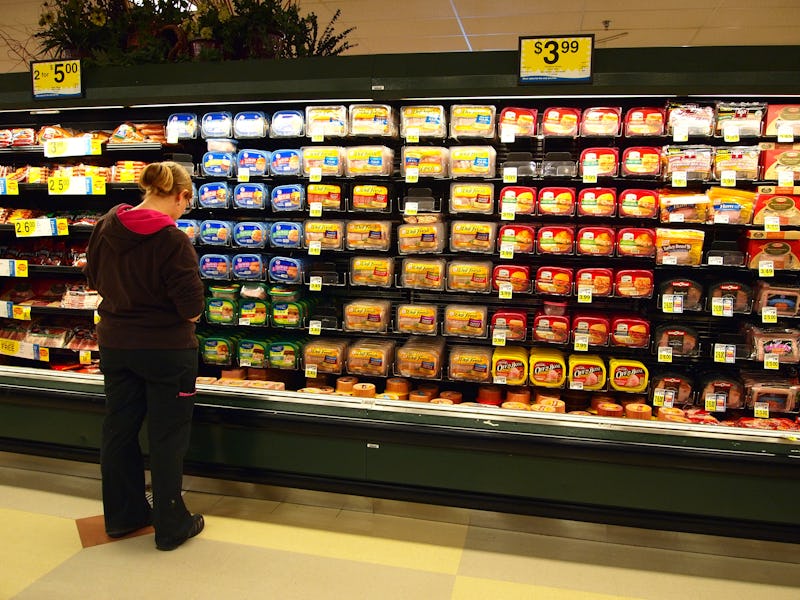"Natural" Food Is a Marketing Scheme, So Why Are We Falling for It?
You won't believe the stuff 'Consumer Reports' found in products with "natural" on the label.

Hopefully this doesn’t come as a surprise to you: The world “natural” on a food label means literally zilch. No one is policing what the word means, or who can and cannot use it, and therefore manufacturers can fill their containers with anything they see fit and call it “100 percent natural.”
And yet: 45 percent of American consumers believe the word “natural” on packaging is verified by somebody, according to a new Consumer Reports survey.
At least half of respondents believed that the “natural” labeling on meat and poultry guarantees no artificial ingredients or colors were added, no artificial growth hormones were used, the animals’ feed contained no artificial ingredients, colors, or GMOs, and that no antibiotics or other drugs were used.
Consumer Reports also bought a handful of products labeled “natural” to expose what’s really going on under the label. The investigation found artificial chemical preservatives in fruit snacks and processed meats. It found genetically modified ingredients and an antifungal chemical that’s also used as a pesticide.
It found xanthan gum in “all natural” sweet potato fries, “an ingredient extracted from a ‘slime’ (we’re not making that up!) produced from bacteria. Xanthan gum can be used as a thickening agent or to give foods a ‘fatty mouth feel.’”
No, it's not.
The investigators also found cellulose powder in Kraft Natural Cheese, “a substance typically created when pieces of wood, cotton, or bamboo are cooked in a caustic solution at high temperatures — which is supposed to keep shreds of cheese from sticking together.”
But solve that issue and you still have a problem. I know that the word “natural” is meaningless on products, and yet I’ll still pick a product that has packaging that makes it appear to be more natural (think pretty pictures of animals grazing in open pastures) over one that looks more artificial and processed.
Obviously, there’s an education gap. People need to know there’s no definition of what counts as natural — it’s pure marketing.
The choices, and the deceptions, are limitless.
You think to yourself, “I don’t have time to read the ingredient list on every product I buy. I need a quick way to make decisions between competing products, and a quick look at the packaging and marketing (and price) is usually the only resource I’m willing to spend to make the choice.”
The psychology of marketing is entrenched. That’s why Consumer Reports doesn’t just want people to know that the word “natural” is undefined, they want the U.S. Food and Drug Administration to ban it or regulate it.
At the end of the day, food manufacturers are going to use the tools at their disposal to sway your preference in their direction. The only real solution is to take the harmful tools away from them.